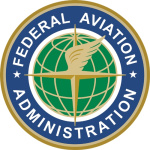- Branche: Government
- Number of terms: 35337
- Number of blossaries: 0
- Company Profile:
The result of giving too much attention to a particular instrument during the cross-check, instead of relying on a combination of instruments necessary for attitude and performance information.
Industry:Aviation
A maneuver prescribed when it is necessary to reverse direction to establish an aircraft on the intermediate approach segment or final approach course.
Industry:Aviation
A tool that is used as a human factors aid in aviation safety. It is a systematic and sequential list of all operations that must be performed to properly accomplish a task.
Industry:Aviation
A turbine engine which produces its thrust entirely by accelerating the air through the engine.
Industry:Aviation
Induced nearsightedness that is associated with flying at night, in instrument meteorological conditions and/or reduced visibility. With nothing to focus on, the eyes automatically focus on a point just slightly ahead of the airplane.
Industry:Aviation
Side view of an IAP chart illustrating the vertical approach path altitudes, headings, distances, and fixes.
Industry:Aviation
An imaginary straight line drawn through an airfoil from the leading edge to the trailing edge.
Industry:Aviation
A strong downdraft which normally occurs over horizontal distances of 1 NM or less and vertical distances of less than 1,000 feet. In spite of its small horizontal scale, an intense microburst could induce windspeeds greater than 100 knots and downdrafts as strong as 6,000 feet per minute.
Industry:Aviation
A turbine engine which drives a propeller through a reduction gearing arrangement. Most of the energy in the exhaust gases is converted into torque, rather than using its acceleration to drive the aircraft.
Industry:Aviation
